Fritextsökning
Artiklar per år
Innehållstyper
-

Editorial: ”AI that both impresses and frightens”
”In the past, I've rarely been particularly impressed by something that was produced by AI. But this is something completely different”, Samuel Lagercrantz writes in an editorial.
-

Claims of life science companies fleeing abroad is a myth according to survey
The claim that life science companies are moving abroad is exaggerated. In fact, only a tiny percentage is leaving the country, according to a survey.
-

Column: ”We need to exploit the benefits of the regulations“
You don’t need to search long on the Internet to find lists of the most innovative countries with Sweden ranking at the top. Sweden generally offers good conditions for growing new solutions, but it is also becoming increasingly clear that we are challenged in one area – regulations, writes Björn Arvidsson in a column.
-

He saved lives with his theories – was ostracised and ended up in a mental hospital
Hungarian doctor Ignaz Semmelweis (1818-1865) undoubtedly possessed plenty of persistence, diligence and sound reasoning skills – but he was hardly blessed with luck and timing.
-
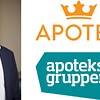
Klart med namn för apoteksjätten
Den nya sammanslagna apoteksjätten ska heta Kronans Apotek. Därmed försvinner varumärket Apoteksgruppen.
-

Sprint tar in kapital för utveckling av cancerprogram
Sprint Bioscience har beslutat att ta in 29,9 miljoner kronor i en företrädesemission. Syftet är att finansiera vidare utveckling av bolagets program inom onkologi.
-

Bought a tablet factory – and built his own empire
In 1995, Thomas Eldered was CEO of one of Pharmacia’s factories in the Stockholm area when the Swedish pharmaceutical giant, after a takeover, decided to move its production abroad. 34-year-old Thomas was facing an imminent risk of losing his job. However, instead, it actually turned out to be the starting point for one of the biggest success stories in Swedish life science.
-
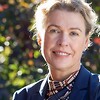
Anna Törner: Kalashnikovs in a new guise
Thanks to resisting European regulatory authorities, Europe has been spared the opioid epidemic. In the 1960s, the situation was the opposite as the American pharmaceutical authority, the Food and Drug Administration (FDA), refused to approve thalidomide (Neurosedyn), writes Anna Törner in a column.
-
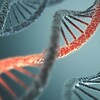
Newly discovered gene variant linked to protection against abdominal obesity
American researchers believe they have identified a rare gene mutation that protects against abdominal obesity and metabolic syndrome. The ambition is that the discovery will lead to new treatments that can help reduce the risk of type 2 diabetes and coronary artery disease.
-

Efterlängtad framgång för Oncopeptides – får grönt ljus i EU
Den europeiska läkemedelsmyndigheten EMA:s kommitté CHMP har enhälligt rekommenderat ett godkännande för svenska Oncopeptides cancerbehandling Pepaxti.
-

Marie Gårdmark: New incentives for orphan products on its way
"Let’s hope that the learnings from development of new therapies for rare diseases will spill over to more common conditions, orphan products paving the wave for drug development in a broader context", writes Marie Gårdmark in a column.
-

Anna Törner: To kill your darlings
Hopes were high when Anna Törner and her colleague started a study on a dietary supplement that seemed unbelievably good. “Enthusiastically, we dreamed of exciting results and perhaps a publication in a high-impact journal,” she writes in a column.
-

Paolo Macchiarini in court – “The sole intent was to cure”
Paolo Macchiarini’s surgical procedure was illegal, life-threatening and caused severe and prolonged suffering to patients the prosecution claimed when the trial against the Italian surgeon began on Wednesday last week.
-
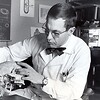
When carelessness, forgetfulness and coincidence become the researcher’s best friend
Forgetfulness, coincidence and a stroke of luck hardly make up a fruitful method of serious research. Or do they? Actually, a number of important medical advances have come about thanks to completely random incidents and the open-mindedness of scientists who were ready to think outside the box.
-

This is how Anette Steenberg will put Medicon Valley on the world map
Anette Steenberg has been CEO of the Swedish-Danish life science cluster Medicon Valley Alliance since 1 November last year. Life Science Sweden called her to ask about her visions and the challenges of merging the worlds of Swedish and Danish life science.
-
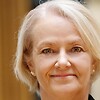
Tina Persson: Så nätverkar du bäst via Linkedin
Du har bestämt dig för att gå vidare i karriären. Och sen då? Tina Persson, karriärcoach och författare till ”The PhD Career Coaching Guide” tipsar om hur du kan ta hjälp av affärsnätverket Linkedin.
-

Marie Gårdmark: Finally, it’s time for a revision of the EU pharma legislation
A challenge for the EU Commission is to deliver a new framework that will also take care of another “pillar” of the pharmaceutical strategy, namely, to ensure that new medicines will be available for all citizens in Europe, writes Marie Gårdmark in a column.
-

“Together Stockholm-Uppsala and Medicon Valley can make Scandinavia a leading life science region”
“Denmark, Sweden, Norway and Finland all have national life science strategies, but the Swedish strategy is the only one explicitly emphasizing the Nordic dimension. But what if the leading life science nations, Denmark and Sweden, joined forces, took the lead and pioneered Nordic life science collaboration? Wouldn´t we then be able to "bake a bigger cake?", writes Anette Steenberg and Ulf G. Andersson in a debate article.
-

Anna Törner: Success requires bold decisions!
“Doing things right is fine, but doing the right things as soon as possible is even better”, writes Anna Törner in a column.
-
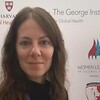
Giulia Gaudenzi: Innovation for good
"I challenge the innovator landscape to take a mental leap. Relying on innovation-solely to end inequality is not enough, therefore consciously and purposively – we need to engage bravely with the politics of poverty and scarcity. Even in life sciences", writes Giulia Gaudenzi in a column.
-

”Life science är den minst innovativa branschen”
Life science bör bli en av Sveriges basindustrier, men det finns problem som behöver överkommas. Det anser Jennie Ekbeck som i en intervju förklarar vad hon menar när hon säger att life science-sektorn behöver bli mer innovativ.
-

Affibody i avtal med miljardpotential om kandidat mot autoimmuna sjukdomar
Solnabolaget Affibody har ingått avtal med amerikanska Acelyrin om utveckling och kommersialisering av sin behandling izokibep mot multipla autoimmuna sjukdomar. Potentiellt är affären värd över 300 miljoner dollar, eller 2,7 miljarder kronor, plus
-
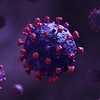
Ökad smittspridning i Storbritannien – oro för "delta plus"
En ny och möjligen mer smittsam mutation av deltavarianten av sars-cov-2-viruset väcker oro, inte minst i Storbritannien där smittspridningen nu ökar.
-

Combigene i miljardavtal om epilepsikandidat: "Projektet hamnar i trygga händer"
Genterapiföretaget Combigene ingår ett globalt samarbets- och licensavtal för sin läkemedelskandidat mot epilepsi. Potentiellt kan ge avtalet ge uppemot tre miljarder kronor plus royalties.